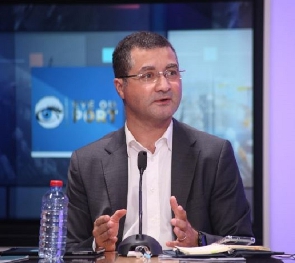Regional Integration Advocate and Logistician, Ziad Hamoui has opined that the Abidjan-Lagos Highway Corridor project has the potential to significantly boost trade and tourism in Africa, but this goal can only be achieved if it is developed in tandem with the necessary soft infrastructure.
He disclosed that the road corridor that exists currently is bedeviled with many non-tariff barriers that hamper trade facilitation including the non-recognition of documentation at the various border posts.
“Even though there is supposedly one harmonized system because we are all under ECOWAS. So coming from Ghana into Cote D’Ivoire for example, if you have an ECOWAS-generated certificate of origin, you would assume they would take it. Again, if you are registered under ETLS in one country, but while you are moving, you are stopped because additional documentation and tariff is demanded from you even though you are entitled to zero-duty, zero-quota for registered products along this corridor,” he explained.
He said these problems create frustrations among the traders and ordinary passengers who traverse the corridor.
Ziad Hamoui, who is the President of the national wing of the trade advocacy organization, Borderless Alliance, is therefore calling on developers of the highway corridor to take into equal consideration trade facilitation at the border, availability of the services from border agencies, the mutual recognition of the trade documents used across borders and a simplification of trade procedures.
“If not you might get the best of highways, but you get choked at the borders,” he decried.
The passionate Pan-Africanist emphasized that the goals of regional integration will not be accomplished without the fluidity of the movement of people and goods seen from the standpoint of the development of both the hard and soft infrastructure.
Mr. Hamoui made these remarks on the Eye on Port TV program.
He expressed great optimism for the highway project, noting that the economic activities of the 5 countries it passes through, make up 88% of the total economic activity of West Africa.
The highway development project, which spans Abidjan to Lagos, through major cities like Accra, Lomé and Cotonou is recognized as one of the most viable trade routes in Africa and is currently in its design phase with a significant part of the construction expected to be done in 2024.
It covers 1028 kilometers with 576km of that distance expected to go through Ghana.
The country’s stretch of the project, which spans Yamoransa-Aboansa and Aburi-Afineya, emerged with an Economic Internal Rate of Return (EIRR) of 17 percent which was higher than the average of 15 percent for the entire project.
This means that investors of the project are likely to get a return of 17 times of their investment over a period of time.
The project in Ghana is yet to kick start as the design phase is expected to be concluded soon. Some construction work has already begun in Nigeria, however.

Press Releases of Friday, 19 May 2023
Source: Eye on Port













